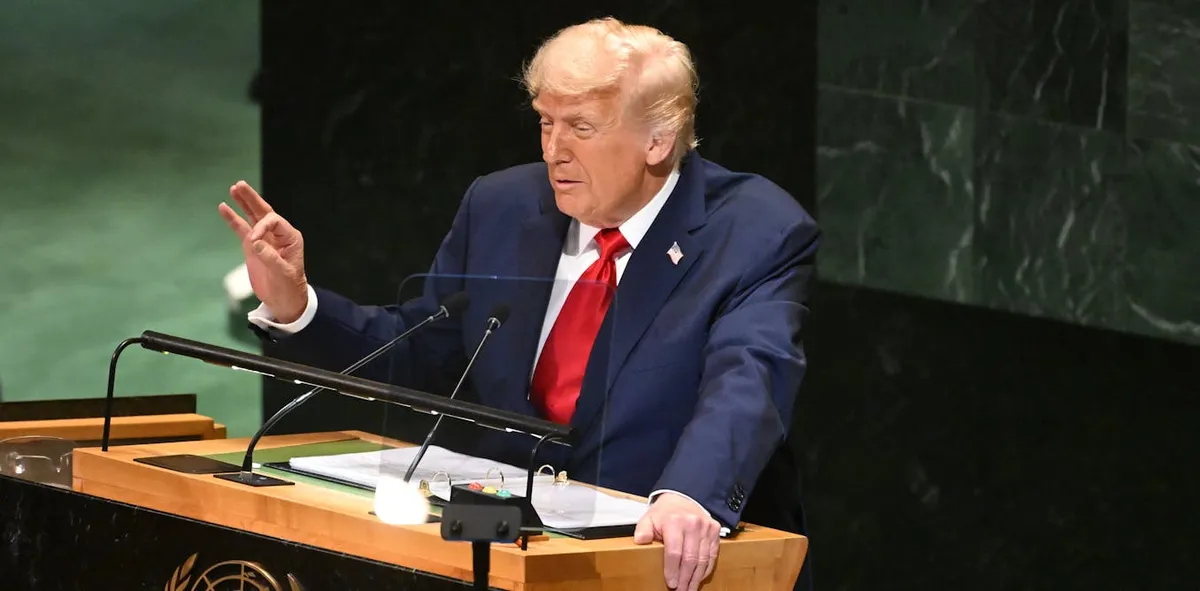
On September 23, during the 80th anniversary general debate of the United Nations, Donald Trump received a mixed reception from the assembled dignitaries. As he approached the podium, the audience offered him a brief 13 seconds of applause, which extended to 20 seconds at the conclusion of his speech. Despite being allotted just 15 minutes, Trump delivered a lengthy address lasting 57 minutes, diverging from the common practice of brevity expected at such international gatherings.
Trump's speech ranged widely, addressing the perceived failures of previous U.S. administrations while critiquing UN migration policies and labeling climate change as a “con job.” He warned global leaders that their countries were heading towards chaos, asserting his own accomplishments such as transforming the U.S. into the “hottest country” and repelling a “colossal invasion” of migrants at America’s southern border. He reiterated his belief that he deserved a Nobel Peace Prize for ending several wars, further emphasizing his self-congratulatory tone throughout the address.
Trump did not hold back in his criticism of the United Nations, claiming it has failed to effectively address global conflicts. He stated, “The UN has such tremendous potential, but it’s not even coming close to living up to that potential.” He suggested that the organization often resorts to “empty words” rather than taking substantive action, casting doubt on its ability to play a productive role in international affairs. Trump extended an offer of “American leadership and friendship” to nations willing to join him in creating a safer world, implicitly advocating for a shift away from UN-led multilateralism towards more bilateral relationships dominated by the U.S.
The backdrop of Trump's address is particularly troubling for the UN, which is facing a significant budget crisis. With US$2.4 billion in unpaid dues from member states against a total budget of US$3.5 billion for 2025, the financial health of the organization is in jeopardy. The U.S. alone owes approximately US$1.5 billion, and the Trump administration has proposed a drastically reduced budget that eliminates funding for UN peacekeeping operations, despite the U.S. obligation to cover a significant portion of these costs.
In addition to his criticisms of the UN, Trump addressed pressing global issues, including the ongoing conflict in Gaza and Russia's invasion of Ukraine. However, his comments appeared to focus more on specific nations rather than promoting a unified approach through the UN. For instance, he criticized European countries for not halting purchases of Russian energy and condemned those who recognized Palestinian statehood, yet did not mention the UN's role in mediating these crises.
Trump's remarks on migration were particularly incendiary. He claimed, “Your countries are being ruined,” attributing this to UN funding for migrant assistance. He accused the UN of facilitating invasions rather than preventing them, and made unverified assertions about London's approach to governance under its mayor, Sadiq Khan. His rhetoric on migration could potentially fuel anti-migrant sentiment globally, as it intertwines the notion of national sovereignty with threats posed by migration.
When discussing climate change, Trump labeled the science behind it as “the greatest con job” yet did not explicitly target the UN, even though the organization has been central to international climate discussions. Instead, he directed his ire towards China, claiming they produce wind turbines for export while lacking commitment to sustainable practices.
While Trump's speech may not have resulted in the drastic withdrawal from UN programs that some feared, it raised significant concerns for those who advocate for international cooperation. His remarks painted a picture of a UN that is ineffective, subordinate to bilateral efforts, and complicit in facilitating migration issues. This perspective may embolden other world leaders with similar views, potentially leading to further reductions in funding for the UN, which is already under considerable strain.
In summary, Trump's address at the United Nations highlighted his administration's skepticism toward multilateral institutions while signaling a preference for unilateral action and bilateral relationships. This shift could have profound implications for global governance and international cooperation in the years to come.